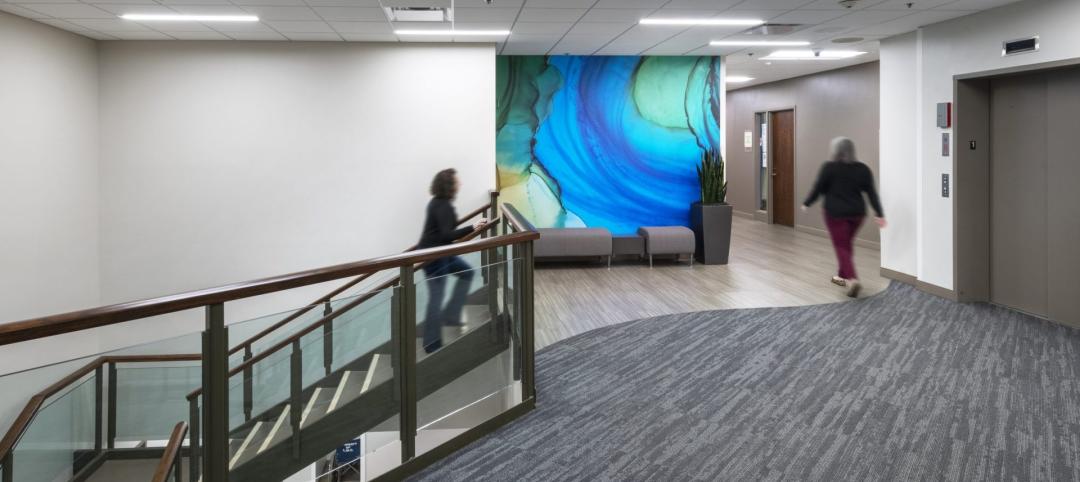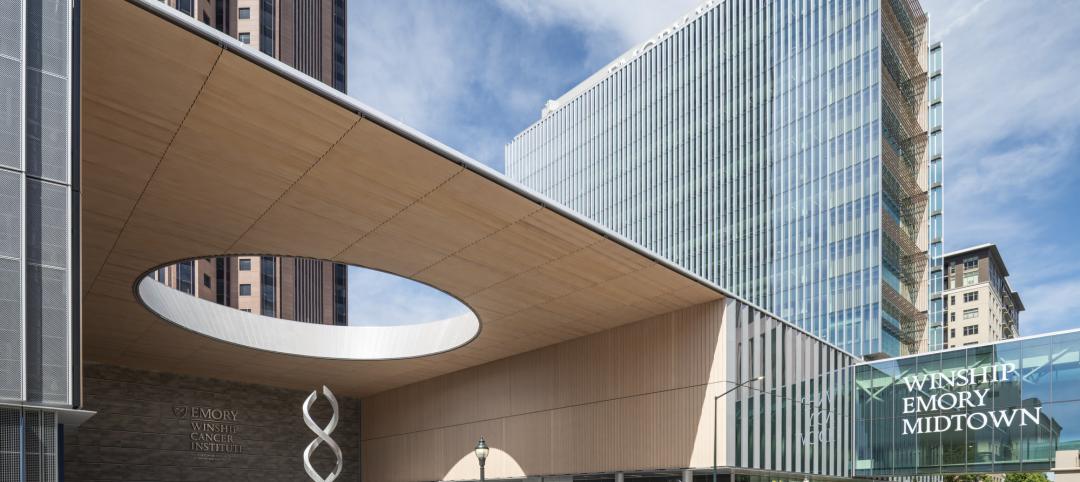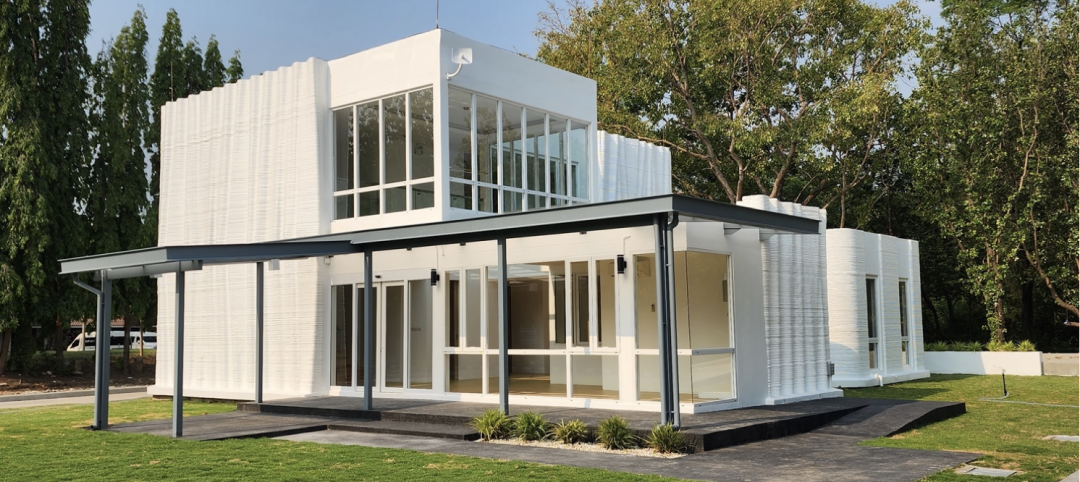By 2030, a fifth of the U.S. population will be 65 or older, according to the Census Bureau. This cohort and succeeding generations are expected to live longer than their predecessors, and remain much more active into their later years.
TOP 90 HEALTHCARE ARCHITECTURE FIRMS
Rank, Firm, 2015 Revenue
1. HDR $189,259,600
2. Stantec $169,505,425
3. Perkins+Will $147,640,000
4. HKS $134,427,510
5. CannonDesign $130,000,000
6. SmithGroupJJR $80,272,000
7. NBBJ $80,000,000
8. CallisonRTKL $69,955,000
9. HGA $67,221,000
10. HOK $59,887,000
TOP 100 HEALTHCARE CONSTRUCTION FIRMS
Rank, Firm, 2015 Revenue
1. Turner Construction Co. $2,013,969,043
2. McCarthy Holdings $974,575,751
3. Skanska USA $909,329,296
4. Brasfield & Gorrie $889,780,920
5. JE Dunn Construction $775,645,914
6. DPR Construction $752,608,000
7. Robins & Morton $629,700,000
8. PCL Construction Enterprises $612,506,352
9. Whiting-Turner Contracting Co., The $536,246,481
10. Gilbane Building Co. $503,914,000
TOP 80 HEALTHCARE ENGINEERING FIRMS
Rank, Firm, 2015 Revenue
1. AECOM $90,000,000
2. Jacobs $78,010,000
3. WSP | Parsons Brinckerhoff $55,480,000
4. BR+A Consulting Engineers $46,000,000
5. KJWW / TTG $39,820,000
6. Smith Seckman Reid $38,668,017
7. Affiliated Engineers $36,208,000
8. BSA LifeStructures $31,488,415
9. Mazzetti $25,966,258
10. TLC Engineering for Architecture $21,012,432
Michael Steiner, AIA, LEED AP, an Associate with Corgan, recently collaborated with the firm’s Francie Abell, Interior Designer, and Landon Moore, Architect, on an age-simulation research project. The goal: to better understand the stresses and anxieties that the 65+ and the mobility-impaired population face when navigating spaces like medical facilities, workplaces, schools, and airports.
“The goal is to elevate awareness of this issue and make sure that we’re designing with these folks in mind,” says Steiner.
At the heart of the Corgan study is the GERontologic Test suit (GERT), an age-simulation ensemble that incorporates weights, gloves, glasses, wraps, and headphones that tack 40 years of wear and tear on the user.
Using the GERT suit, Corgan designers experienced first-hand the difficulties that the elderly and mobility impaired confront every day. They walked through four Corgan-designed buildings—Dallas Love Field Airport; Daugherty Elementary, Garland, Texas; Moncrief Cancer Institute, Fort Worth; and Corgan’s headquarters in Dallas. They completed a series of tasks at each location, once wearing the GERT suit and once without.
Simple exercises—grabbing a can of soda from a refrigerator, pulling a roller suitcase through an airport terminal, carrying books down a school hallway, climbing a staircase, working on a desktop computer, taking notes, locating a specific binder on a bookshelf—were excruciatingly difficult for many of the users.
It took participants 52–73% longer to complete the tasks with the GERT suit on than without it.
LESSONS LEARNED
Based on their observations (see below), Corgan’s team offers the following takeaways:
• Consider wayfinding strategies with multiple elements and large signs. Participants tended to look down and reacted more slowly, which led them to miss signage. Wayfinding strategies that incorporate both floor and wall elements could help improve communication.
• Investigate signage locations with areas of bright light and intense shadow. Consider films or frits to help reduce the amount of glare and strong shadows. Minimize the use of white finishes in brightly lit spaces, which can cause glare.
• Include “fatigue mitigation” stations. Break up long distances with areas where occupants can rest and confirm the correct direction.
• Avoid changes in level along primary pathways. Make sure elevator/escalator cores are readily visible and accessible.
Design with multiple senses in mind. Some users use sight, others depend on touch, sound, or smell.
• Provide seating of different levels (e.g., standard seats, high seats, and something to lean on).
• White text on green was by far the most preferred signage method. White text on blue was also very effective. Backlit signage is highly recommended.
• Avoid using low, protruding objects, such as low chairs and tables.
For more: http://tinyurl.com/CorganAge.
RETURN TO THE GIANTS 300 LANDING PAGE
Related Stories
Healthcare Facilities | Jun 27, 2023
A woman-led CM team manages the expansion and renovation of a woman-focused hospital in Nashville
This design-build project includes adding six floors for future growth.
Standards | Jun 26, 2023
New Wi-Fi standard boosts indoor navigation, tracking accuracy in buildings
The recently released Wi-Fi standard, IEEE 802.11az enables more refined and accurate indoor location capabilities. As technology manufacturers incorporate the new standard in various devices, it will enable buildings, including malls, arenas, and stadiums, to provide new wayfinding and tracking features.
Healthcare Facilities | Jun 14, 2023
Design considerations for behavioral health patients
The surrounding environment plays a huge role in the mental state of the occupants of a space, especially behavioral health patients whose perception of safety can be heightened. When patients do not feel comfortable in a space, the relationships between patients and therapists are negatively affected.
Engineers | Jun 14, 2023
The high cost of low maintenance
Walter P Moore’s Javier Balma, PhD, PE, SE, and Webb Wright, PE, identify the primary causes of engineering failures, define proactive versus reactive maintenance, recognize the reasons for deferred maintenance, and identify the financial and safety risks related to deferred maintenance.
Healthcare Facilities | Jun 5, 2023
Modernizing mental health care in emergency departments: Improving patient outcomes
In today’s mental health crisis, there is a widespread shortage of beds to handle certain populations. Patients may languish in the ED for hours or days before they can be linked to an appropriate inpatient program.
Healthcare Facilities | Jun 1, 2023
High-rise cancer center delivers new model for oncology care
Atlanta’s 17-story Winship Cancer Institute at Emory Midtown features two-story communities that organize cancer care into one-stop destinations. Designed by Skidmore, Owings & Merrill (SOM) and May Architecture, the facility includes comprehensive oncology facilities—including inpatient beds, surgical capacity, infusion treatment, outpatient clinics, diagnostic imaging, linear accelerators, and areas for wellness, rehabilitation, and clinical research.
Healthcare Facilities | May 19, 2023
A new behavioral health facility in California targets net zero energy
Shortly before Mental Health Awareness Month in May, development and construction firm Skanska announced the topping out of California’s first behavioral health facility—and the largest in the nation—to target net zero energy. Located in Redwood City, San Mateo County, Calif., the 77,610-sf Cordilleras Health System Replacement Project is slated for completion in late 2024.
3D Printing | May 12, 2023
World’s first 3D-printed medical center completed
3D construction printing reached new heights this week as the world’s first 3D-printed medical center was completed in Thailand.
Sustainability | May 11, 2023
Let's build toward a circular economy
Eric Corey Freed, Director of Sustainability, CannonDesign, discusses the values of well-designed, regenerative buildings.
Digital Twin | May 8, 2023
What AEC professionals should know about digital twins
A growing number of AEC firms and building owners are finding value in implementing digital twins to unify design, construction, and operational data.


















